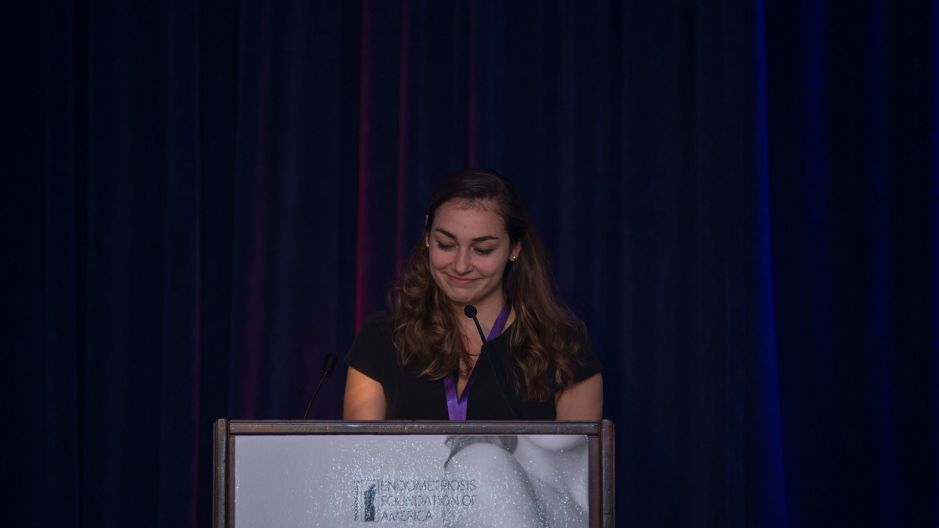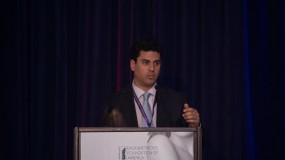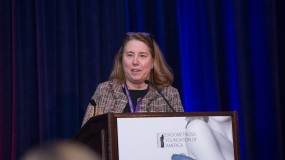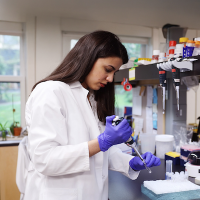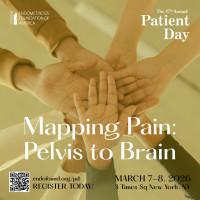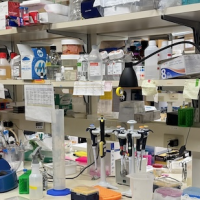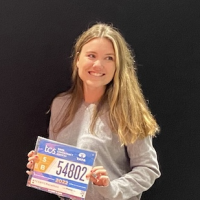Endofound Medical Conference 2017
"Breast, Ovary and Endometriosis"
October 28, 2017 - Lotte New York Palace Hotel
Endofound Research Grants
Serin Seckin, MD
Resident Physician at Mount Sinai Health System
Hello, everybody. This will be very short. I press the green button. Okay. I'm just going to briefly go over Endofound research grants from the last year. Endofound awarded over $400,000 in research funding this year to fund research projects focusing on endometriosis, and that's ranging from scientific studies to social impact studies, and you'll see an example of all of them. So this is the brief list, and we'll just go through them briefly one by one.
The first one is what Dr. Shih already presented to us, which is very impressive, and a landmark study on the cancer associated mutations in endometriosis without cancer. I'll go to the next one. It's Dr. Gupta at George Mason University, who I heard was here today, in innovations in understanding and responding to the psychosocial health impacts of endometriosis on young adult women. Then, they're doing this through survey data. If Dr. Gupta has any updates, we'd love to share them with her. The next is University of Texas San Antonio, where they have a studio on estrogen receptors, alpha, and beta, which was mentioned heavily today, and how they influence the attachment of endometrial cells to peritoneal mesothelial cells. They were presented this year at ASRM, and they presented The Role of Estrogen Receptor Beta in the Development of Early Endometriotic Lesions. I'll go a little quicker.
I think I skipped one. Did I? How can I go back? Okay, here we go. The study is from Columbia University Medical Center. It is from Dr. Elhadad, and it focused on an app called Phendo, to track and understand endometriosis, and to bridge the gap between what endometriosis patients actually experience and how doctors characterize the disease. Next is from Dr. Gomez, and the study is on global multivariant analysis of putative biomarkers identified through a combined multi-technical approach for the early non-invasive detection of endometriosis. So this study focuses on diagnosing endometriosis through micro RNA PCR. The next study is from University of Cincinnati with Dr. Burns, and the study title is Environmental Contaminants DEH and inducting endometriosis through that, so this is interesting. I don't think we have too many recent updates from that, but I'd like to see what they show.
The next one is from Dr. Braundmeier-Fleming. This is from Southern Illinois University. The study is utilizing the microbiome to diagnose endometriosis. So as we know, endometriosis can only be a tissue diagnosis from a pathologic investigation, so this would be a way to maybe try and diagnose endometriosis through the microbiome. I think maybe this is the last one. This is from Michigan State University, and their study is to investigate altered hippo signaling pathway in endometriosis. I don't think it's actual hippos. That's the pathway. They do see some significant differences, and we're looking forward to any further updates they have for us. Oh, this is the last one. This is, again, from University of Texas San Antonio, and this is from Dr. Kirma. The study is entitled Enhanced endometrial-mesothelial gap junction communication in endometriosis. They did see a significant difference in their most recent update in terms of expression profiles of endometriotic legions in the stroma versus in the peroneum.
Our last one, from Stanford University, from Dr. Gross, who's an anesthesiology professor. The study is entitled Reducing reactive aldehyde levels to treat endometriosis-associated pain. The goal of this is to develop a biomarker to predict treatment of endometriosis. There are other studies that are a part of Endofound's research goals. The ROSE study, which we'll go through briefly. Let's see. Some updates in the ROSE study are that ... It was to collect tissue samples from women who had surgery for endometriosis and to analyze that tissue. Another goal was to create a mouse model, which they successfully did create. Doing genomic analysis of those endometriotic lesions is the next aim that they have moved on to, so we'll see what they do.
Citizen Endo is outside right now. The next study is another one that I don't think we know much about, but it's reconfiguring visions of inevitable maternity and incorporating infertility into the understanding of womanhood. Lastly, I just want to go over next year and the applications for 2018 for research grants. Up to $25,000 can be granted per study. We are aiming to collect applications by January 30th, and selections will be made in March. Again, Endofound is looking for projects that utilize innovative methodologies, have research objectives that aim to significantly advance the scientific community's understanding of the disease, and have a record of producing an impactful study that will influence the overall healthcare outcomes of those facing endometriosis.



